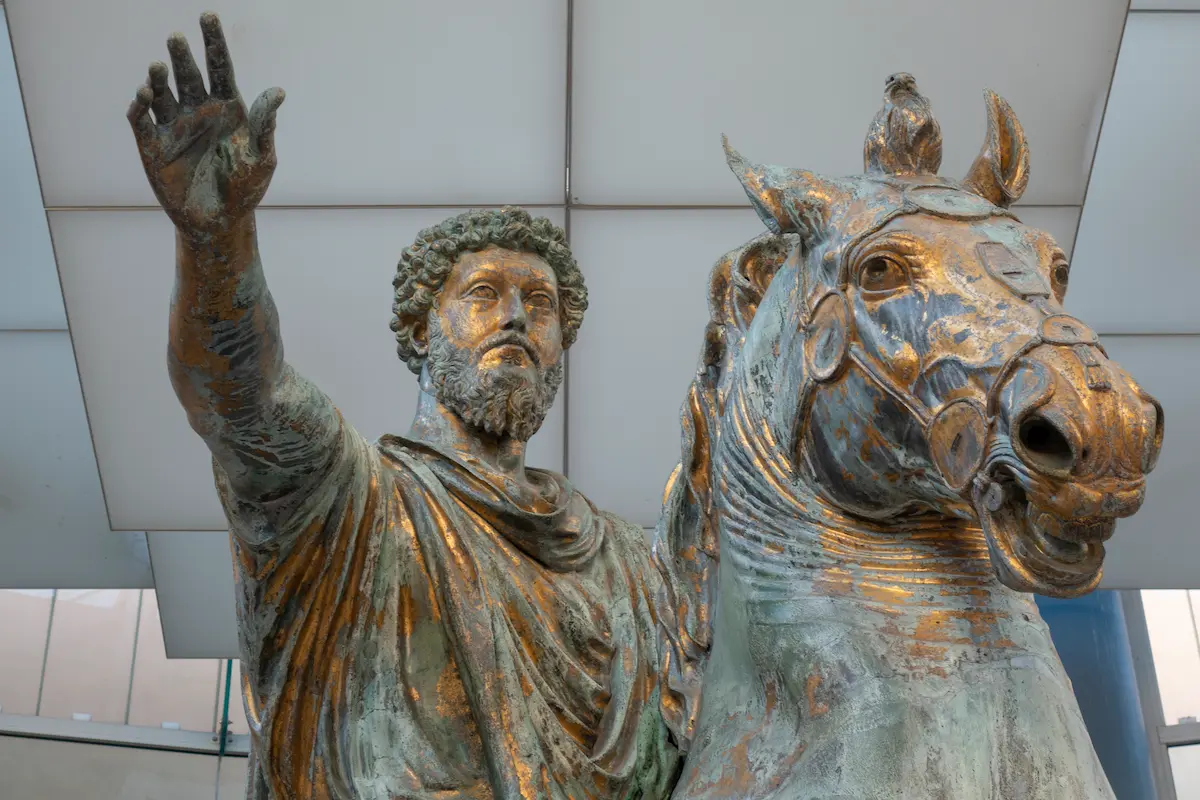“You could leave life right now. Let that determine what you do and say and think.”
Marcus Aurelius
In the midst of our busy lives, we often get swept up in the whirlwind of daily responsibilities, forgetting about the one absolute truth – life is impermanent. In Meditations, a collection of his personal writings, of the greatest thinkers in human history, Roman Emperor Marcus Aurelius, recorded two powerful sentences that can serve as a guiding light in these chaotic times. “You could leave life right now. Let that determine what you do and say and think.”
Stoicism: A Philosophy for Life
Before we delve into the power of these words, it’s essential to understand Aurelius’s philosophical orientation – Stoicism. Stoicism is a school of philosophy that was developed in ancient Greece and later popularized by Aurelius. Stoics emphasized the importance of accepting life as it is, finding peace in the impermanence of everything, and focusing on the things within our control.
Aurelius and The Art of Living in the Moment
Marcus Aurelius’s quote, “You could leave life right now. Let that determine what you do and say and think,” is a profound reminder of the ephemeral nature of our existence. By fully grasping the potential immediacy of our mortality, we can align our actions, words, and thoughts to reflect what truly matters to us. The purpose is not to generate fear but to bring about a heightened sense of consciousness and focus on the present moment.
Actions Reflecting Your Essence
When you consider that life could end at any moment, it invites you to think about what you would do if you knew your time was limited. This reflection allows us to prioritize activities that bring joy, fulfillment, and a sense of purpose. Whether it’s spending time with loved ones, pursuing a passion, or making a positive impact in the world, the urgency of life’s end serves as a compass directing us towards meaningful actions.
Words Echoing Your Intentions
Aurelius’s wisdom also applies to our words. When we realize our time is finite, the things we choose to say can become more thoughtful and authentic. Our words become an expression of our true selves and our feelings toward others. Engaging in destructive communication like gossip, negativity, or deceit seems wasteful. Instead, we might choose to express love, gratitude, or offer encouragement, words that have the power to uplift ourselves and others.
Thoughts Guiding Your Life
In the end, it all boils down to our thoughts. Aurelius emphasizes the power of mindset and the ability of our thoughts to shape our reality. Recognizing life’s brevity allows us to focus our mental energy on positive, constructive, and meaningful thoughts. It helps us to let go of trivial worries and unproductive thought patterns, enabling us to live a more mindful and fulfilling life.
Applying Aurelius’s Wisdom to Modern Life
In our modern, fast-paced world, it’s easy to lose sight of this timeless wisdom. We often find ourselves consumed by superficial worries and short-term goals, forgetting to live in the now. However, we can consciously choose to implement Aurelius’s philosophy in our daily lives.
Reflect on your actions, words, and thoughts at the end of each day. Ask yourself if they reflected your values and purpose. If not, identify what you can change tomorrow. Use the uncertainty of life as a tool for conscious living, not as a source of fear but as an instrument of clarity and motivation.
The Path Ahead
The teachings of Marcus Aurelius hold an eternal relevance. They urge us to face the impermanence of life head-on and let it guide our actions, words, and thoughts. By embodying this wisdom, we can truly live in the moment, embrace what life offers, and fulfill our potential.
As you navigate through life, remember Aurelius’s words, “You could leave life right now. Let that determine what you do and say and think.” Let this understanding inspire you to lead a life of purpose, authenticity, and joy. After all, it’s not the length but the depth of life that truly matters.
Featured Image: Nicholas Hartmann, CC BY-SA 4.0, via Wikimedia Commons

Leave a Reply